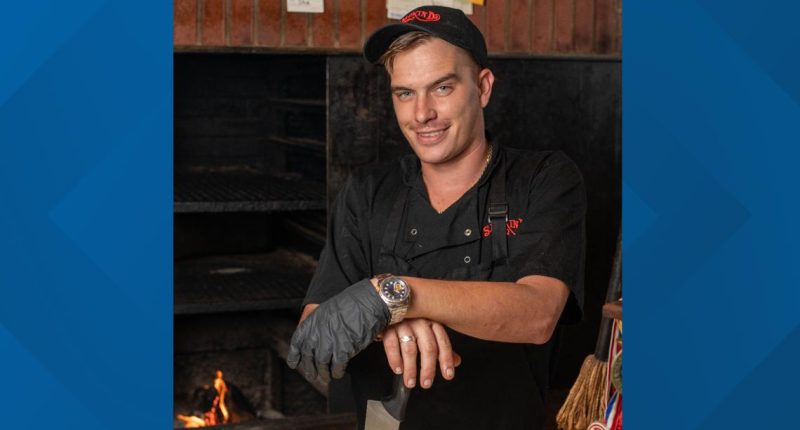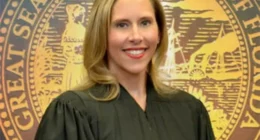Share this @internewscast.com

Gov. Ron DeSantis vetoed HB 6017 one day before his deadline to sign the bill.
JACKSONVILLE, Fla. — Just one day before the deadline to approve the legislation, Gov. Ron DeSantis vetoed House Bill 6017, aimed at repealing the state’s so-called ‘Free Kill’ law.
He delivered the announcement during a press conference in Fort Myers on Thursday morning, pointing out the potential effects on the state’s healthcare industry and insurance premiums.
This announcement comes as a blow to families who have been fighting for the repeal of the Free Kill law, including Daryl Perritt.
“Republicans and Democrats said this was wrong. DeSantis said I don’t care,” Perritt said.
Perritt’s son, Cameron, passed away on Nov. 21, 2024, following a four-day hospitalization. Perritt had taken his son to the hospital on Nov. 19, 2024, after Cameron complained of severe abdominal pain. Despite informing the medical staff about Cameron’s history with blood clots, he died four days later.
Because Cameron was over 25, unmarried, and without children, Perritt could not sue the hospital for medical negligence under the state’s so-called ‘Free Kill’ law.
“Cameron should have exactly the same rights as I do. Because he didn’t have children?” Perritt asked.
Perritt is now feeling anger and disappointment after learning of DeSantis’ decision to veto HB 6017.
“He put the profits of the medical insurance industry above the lives of the people of Florida,” Perritt said.
Despite House Bill 6017 passing in both the Florida House and Senate with overwhelming support, DeSantis vetoed the bill Thursday.
“I don’t think what they’ve proposed here is going to put us on the strong foot without additional safeguards,” DeSantis explained during Thursday’s press conference.
DeSantis believes the bill would raise insurance premiums and turn off doctors from wanting to work in Florida; however, he said he would have supported a bill that capped the amount of non-economic damages a family could recover from a medical negligence lawsuit.
“And cap the amount that attorneys can recover. If you do that, you are totally disincentivizing frivolous lawsuits,” DeSantis said.
Cindy Jenkins, who has also been advocating for the repeal of the Free Kill law after her daughter died at a Florida Hospital, pushed back on caps.
“It completely destroys the whole reason for due process and letting each case be heard on an individual basis and the facts listened to and the jury decides what is appropriate, what punishment would be appropriate for the crime,” Jenkins said.
During Thursday’s press conference, DeSantis also noted families can still sue for economic damages under the current law. Jenkins said that is misleading because it often takes more money for attorneys to perform their initial investigations into the negligence than the amount of money families would receive, which means most attorneys do not want to take those cases.
“They can’t afford to do a $100,000 plus pre-suit investigation to prove that medical malpractice happened before you can even access our courts, and then be handed a check for funeral expenses because that’s an economic damage,” Jenkins explained.
While Perritt continues to process the governor’s announcement, he’s already making plans to be in Tallahassee Monday to push lawmakers to override the veto.”
“I got all the money I need. This is about what’s right and what’s wrong, and what’s fair,” Perritt said.
DeSantis formally issued the veto Thursday afternoon. State Sen. Clay Yarborough, who sponsored the Senate version of the bill, released a statement Thursday stating he “accepts” the governor’s decision.
“While I wanted to see the bill become law, I have great respect for Governor DeSantis and his role as our Chief Executive. I accept his decision,” Yarborough said.
He added he will not be advocating to override the veto.
“Since the Governor indicated recently that a veto was coming, I have received many inquiries from stakeholders about a veto override. I want to be clear with everyone that I am not advocating for a veto override. There is certainly a place for overrides as contemplated in our Constitution. However, the Governor has an important role in policy changes for our state and I believe his perspective on this issue should be reflected in our laws,” Yarborough said.

















